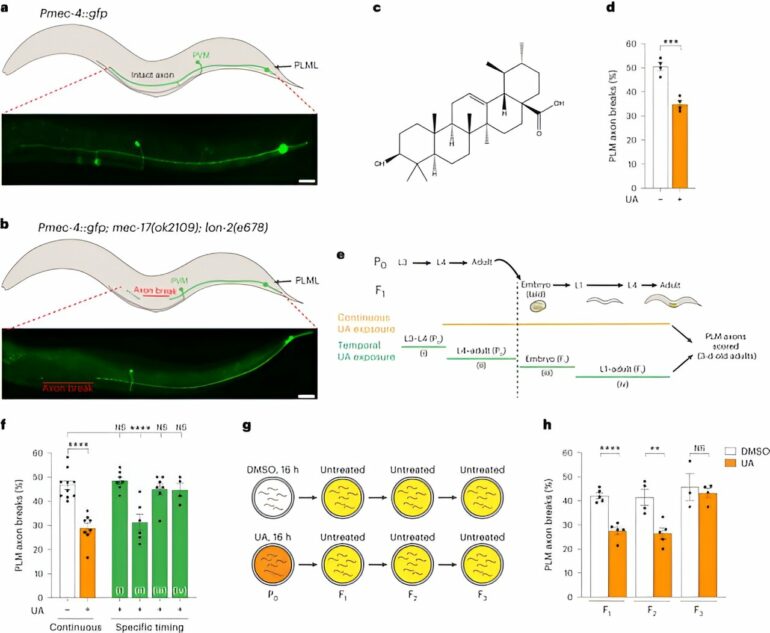Mothers who eat apples and herbs in early pregnancy could be protecting the brain health of their children and grandchildren, a Monash University study using genetic models has found.
The discovery is part of a project that found a mother’s diet can affect not just her child’s brain but also those of her grandchildren.
Published in Nature Cell Biology, the Monash Biomedicine Discovery Institute study found that certain foods could help protect against the deterioration of brain function.
More specifically, the study used roundworms (Caenorhabditis elegans) as the genetic model because many of their genes are also found conserved in humans, allowing insights into human cells.
The researchers found that a molecule present in apples and herbs (basil, rosemary, thyme, oregano, and sage) helped reduce the breakdown of communication cables needed for the brain to work properly.
Senior author Professor Roger Pocock and his team investigated nerve cells in the brain that connect and communicate with each other through about 850,000 kilometers of cables called axons. For axons to function and survive, essential materials need to be transported along an internal structure that contains microtubules.
Professor Pocock explained that a malfunction that caused the axons to become fragile led to brain dysfunction and neurodegeneration. He said his team used a genetic model with fragile axons that break as animals age. “We asked whether natural products found in the diet can stabilize these axons and prevent breakage,” he explained.
“We identified a molecule found in apples and herbs (ursolic acid) that reduces axon fragility. How? We found that ursolic acid causes a gene to turn on that makes a specific type of fat. This particular fat also prevented axon fragility as animals age by improving axon transport and therefore its overall health.”
Professor Pocock said this type of fat, known as a sphingolipid, had to travel from the mother’s intestine, where food is digested, to eggs in the uterus for it to protect axons in the next generation. He said while the results were promising, they still need to be confirmed in humans.
“This is the first time that a lipid/fat has been shown to be inherited,” he said. “Further, feeding the mother the sphingolipid protects the axons of two subsequent generations. This means a mother’s diet can affect not just their offspring’s brain but potentially subsequent generations. Our work supports a healthy diet during pregnancy for optimal brain development and health.”
More information:
Wenyue Wang et al, An intestinal sphingolipid confers intergenerational neuroprotection, Nature Cell Biology (2023). DOI: 10.1038/s41556-023-01195-9
Citation:
A mother’s diet can protect her grandchildren’s brains, genetic model study shows (2023, August 3)



